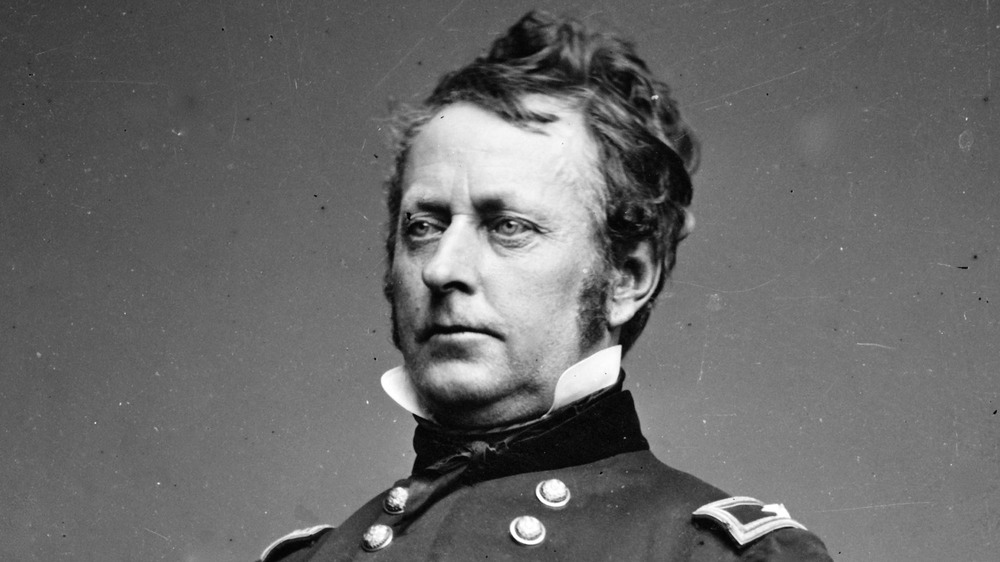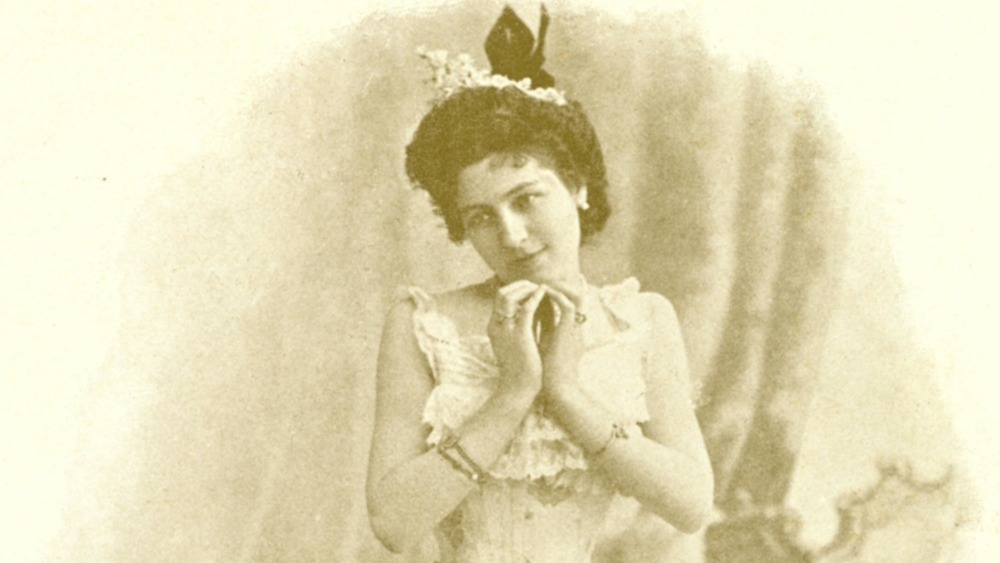The Dubious Legacy Of General Joseph Hooker
General Joseph "Fighting Joe" Hooker served as a Union Army officer during the Civil War. Tasked with commanding the Army of the Potomac, he moved his soldiers north in the spring of 1863 to face General Robert E. Lee and his army at The Battle of Chancellorsville. The battle raged on for a week before General Hooker was ultimately defeated because he failed to take timely, decisive action. His orders were issued too slowly to effectively mobilize his men, and General Lee came away with the victory, despite being outmanned by the Union forces.
As it turns out, Hooker wasn't known for his quick decision making, sharp tactical mind, or for imparting strict military discipline on his men. Rather, it seemed his main concern was making sure his troops' spirits remained high while they were fighting the Confederates.
Hooker's preferred method of keeping morale up was by throwing massive parties that were frequently attended by women of the night. His men were encouraged to make use of their offerings, and the general wasn't shy about leading by example. He was reportedly no stranger to enjoying their services himself, according to We Are The Mighty.
General Hooker help give rise to a common slang term for sex workers
According to Rob Dalessandro, of Fort McNair's U.S. Army Center for Military History, "soldiers in the Army of the Potomac, the Federal Army operating in the east in which Hooker served, quickly named the hordes of female camp followers that plied their trade on young and often naive soldiers, 'Hooker's Legions,'" reports Stars and Stripes. Richard L. Baker, of the U.S. Army Military History Institute, further explained: "We see the evolution and adoption of a word varies over time and by association with different groups of peoples ... We can credit General Hooker and the Union Soldiers with adding to the continuity of the term in present form."
Hooker was better remembered for his legendary parties than for his military prowess, and "hookers" came to be associated with the working women who made their living servicing the Union soldiers. Over time, the military association was dropped, but the term stuck around in general parlance as a slang word for sex workers.

